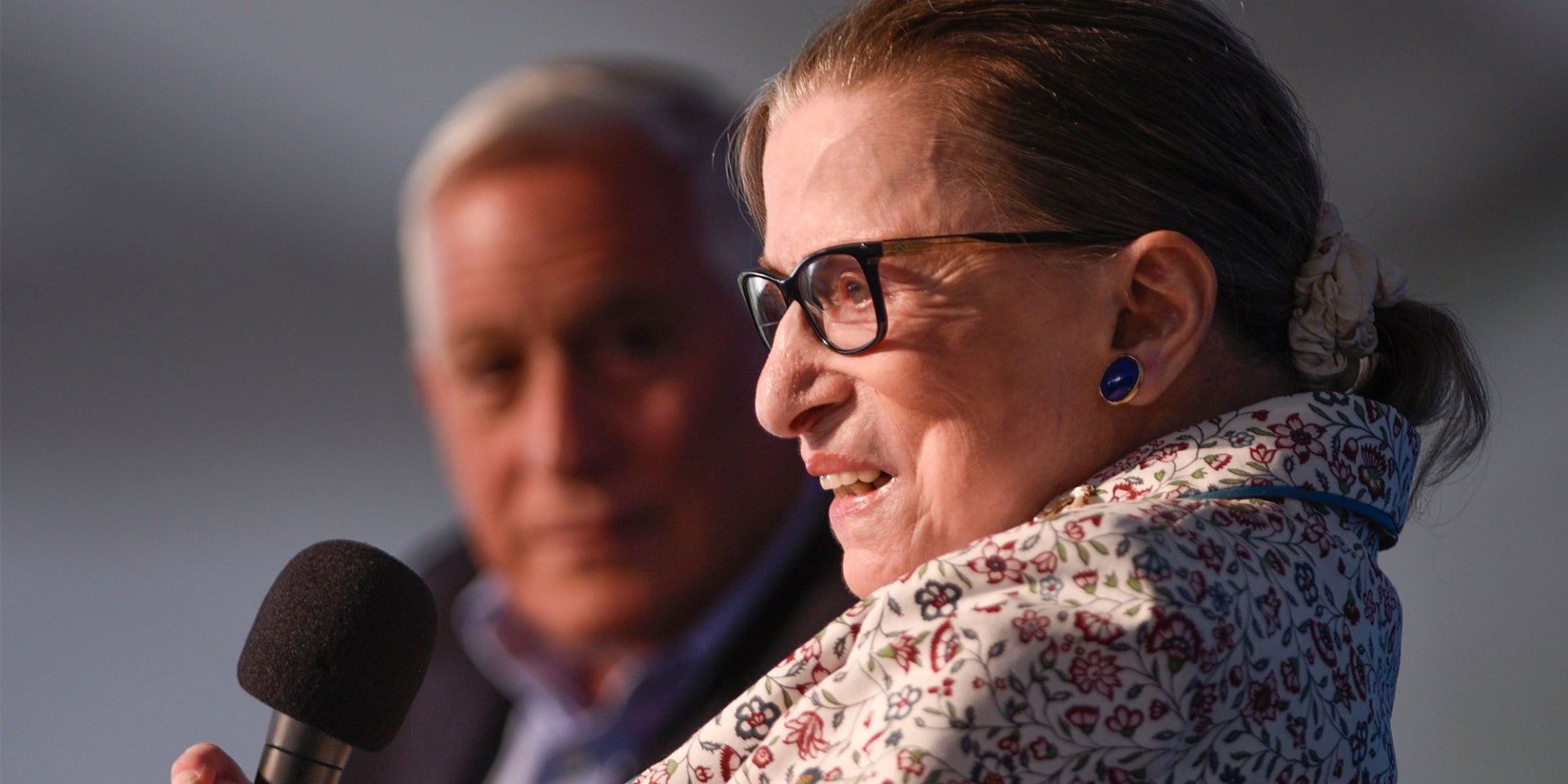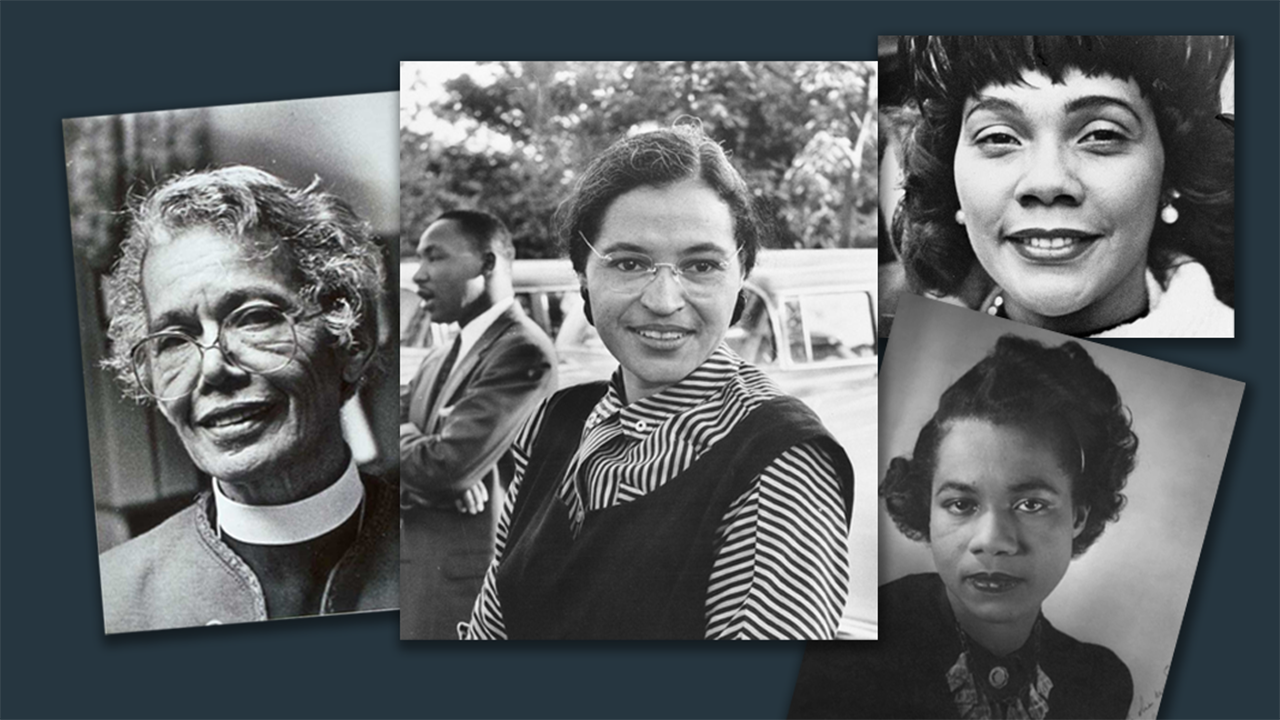The legacy of the inimitable Ruth Bader Ginsburg is powerful and far-reaching beyond measure. A tiny giant amongst us, her life’s work reached every individual in our society and moved us closer to the kind of equality we dream of for America. We, the co-chairs of the Aspen Forum on Women and Girls, rise today to salute her courage, fortitude, intellect, and enduring impact on millions of women, girls, and families. She was a true warrior for justice, who marched to her own drumbeat, and followed a constant north star that all people are created equal under the law.
Ruth Bader Ginsburg graced the halls and campuses of the Institute many times over the years. More than ten years ago, at one of the first Aspen Ideas Festivals, we held a session on reproductive rights. We were shuffled down to a distant basement room, rather than one of the airy and colorful big tents, as we were a peripheral “women’s session.” As we sat with a panel of expert speakers waiting for the session to begin, we worried that we may not have many attendees as we were off the beaten campus path. Yet, the room quickly filled up to capacity, and then standing room only, and the program began. Looking out the window, we saw a young man pushing a wheelchair down the dirt path to the entrance of the room. It was RBG, pushed gently by her grandson, wrapped in shawls against the chill Aspen morning air with a determined face and alert eyes. She was not on the program as a speaker, although we had heard she was on campus. We welcomed her to the front row where she beamed and said, “I wouldn’t miss this session for the world—I have devoted my life to upholding the rights of women to make decisions about their own bodies.” At our request, RBG went on to deliver a fascinating, facts-based recitation of the evolution of the law on reproductive rights, and her role in specific cases over decades.
This year, RBG had generously agreed to speak to the young women in the first-ever all-women’s fellowship at Aspen—the SOAR Fellowship—on July 29th this year, which was unfortunately canceled due to COVID. Our cohort of young women leaders was eager to watch, listen, and learn from RBG as one of the most powerful women leaders of our time. RBG fought tirelessly for gender equality under the law, all the while in her own life, showing us all how to keep pushing forward, dogged, head down, even in the face of overt discrimination and bias. The image of the tiny RBG in the corner of the almost all-male class of Colombia Law School is poignant, as is her retelling of how she was unable to get a job after law school, even though she was #1 in her class. Yet, RBG tells us, in her straight-forward, matter of fact, face-forward way, that this obstacle led her to work as a researcher on gender equality, which became her life’s work.
“Women belong in all places where decisions are being made,” Ginsburg said, and as a Supreme Court Justice and circuit judge, argued countless cases that expanded civil rights law and the 14th Amendment Equal Protection Clause to women. RBG successfully ensured that men and women got equal preference in estate disputes, and that it was unconstitutional to apply different standards to military spending benefits for men and women. Her genius lay in her ability to peel away ideological, social, and political concerns to lay bare the fundamental question of equal treatment before the law. Ginsburg remarked “I think of how the Constitution begins: ‘We the people of the United States, in order to form a more perfect union…’ But we’re still striving for that more perfect union. And one of the perfections is for ‘we the people” to include an ever-enlarged group.”
Best known for her dissenting opinions, wearing her signature quirky and beloved jabot collars, RBG’s opinions often led to sweeping government policy change, as in her 2007 dissent in a pay discrimination case which led to the Lily Leadbetter Fair Pay Act of 2009.
As we all reflect on the many pioneering and profound impacts RBG had on our society, our inaugural class of SOAR fellows comes to mind. We are struck by how the work of so many of them would not be possible without RBG. They, and we, are literally standing on her shoulders and carrying her work forward. Desiré Shepler, CEO of Alaska Family Services, works to protect the rights of abused women and to bring reproductive health services to all Alaskan women. RBG’s 2016 dissent in Whole Women’s Health v. Hellerstedt argued for women’s full access to reproductive rights, paving the way for Desiré’s work. A’shanti Gholar leads Emerge, which is building a 700 women strong pipeline of diverse candidates running for public office, work that builds on decades of RBG’s rulings. And Rebecca Dixon, the new executive director of the National Employment Law Project, fights for pay equity and breaks down barriers for women’s participation in traditionally male-dominated occupations, battling for the fair implantation of RBG’s groundbreaking legislative victories.
RBG, we carry your life’s work with us every day, we gather in our courage from watching your bravery, we sharpen our arguments and evidence with you as our guide, and we keep going, as long as we can, with your strength and fortitude as our anchor. We salute you, RBG, and commit to carrying it on for generations to come.
Watch this clip of RBG’s talk on women’s rights at the Aspen Institute.


